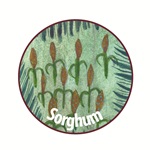Establishing a molecular breeding programme based on the aluminium tolerance gene AltSB and the P efficiency QTL, Pup1, for increasing sorghum production in sub-Saharan Africa (G7010.03.03)
| Target countries |
Kenya, Niger |
| Lead institute |
International Crops Research Institute for the Semi-Arid Tropics |
| Partners |
|
In Africa, a combination of soil constraints and a lack of adapted crop cultivars are clearly two of the most important factors responsible for low grain yield. Low productivity is a serious problem in many parts of Africa where sorghum is a staple food supporting millions of the rural poor. This project will attempt to validate homologs of the major rice P uptake QTL, Pup1, functioining as P deficiency tolerance genes in sorghum, and investigate a similar role for the major Al tolerance gene, AltSB. If successful, we will develop molecular markers for Pup1 validated homologues for marker-assisted selection for P deficiency tolerance in sorghum. We are also developing and validating gene-specific markers for AltSB within other GCP projects. The project implements a molecular breeding programme targeting Niger and Kenya using random mating ms3 populations (RMPs) for the eventual development of improved varieties and breeding materials with Al tolerance and improved performance under low P stress. These two target traits largely underlie adaptation to acid soil and low-phosphorus conditions. This project will build upon the progress achieved in the GCP commissioned project, ‘Assessment of the breeding value of superior haplotypes for AltSB, a major Al-tolerance gene in sorghum: linking upstream genomics to acid soil breeding in Niger and Mali (ALTFIELD).’ The results will be validated in Kenya and Niger as well as at EMBRAPA Maize and Sorghum (EMBRAPA MS) using S1 and S2 selected progenies from RMPs in phenotyping sites specifically developed for this purpose.
Overall goal:
develop the capacity and necessary tools in African institutions for stacking desirable genes in the development of elite multiple trait cultivars and to develop breeding materials that show superior performance in soils where Al toxicity and low P availability can cause serious reductions in productivity.
Objectives
- Development of adequate elite random mating ms3 populations (RMPs) segregating for both Al tolerance and P acquisition efficiency and the generation of half-sib/full-sib and S1 progenies for marker assisted selection for AltSB and Pup1.
- Development of marker-assisted selection (MAS) protocols for AltSB and Pup1* and their application in half-sib, full-sib, and S1 progeny derived from the RMPs.
- Field validation of S2 progenies with superior AltSB or Pup1 alleles, and progeny where AltSB and Pup1 have been pyramided
- Generate through marker-assisted backcrossing locally adapted breeding lines (at least one per partner country) which combine a favourable AltSB allele with 1–3 closely linked morphological markers (ie, awning, and possibly ms3, and in Niger or Kenya the red Pericarp colour is also an option)
- Development of human resources and minimal infrastructure for executing MAS recurrent selection and marker assisted backcrossing.


